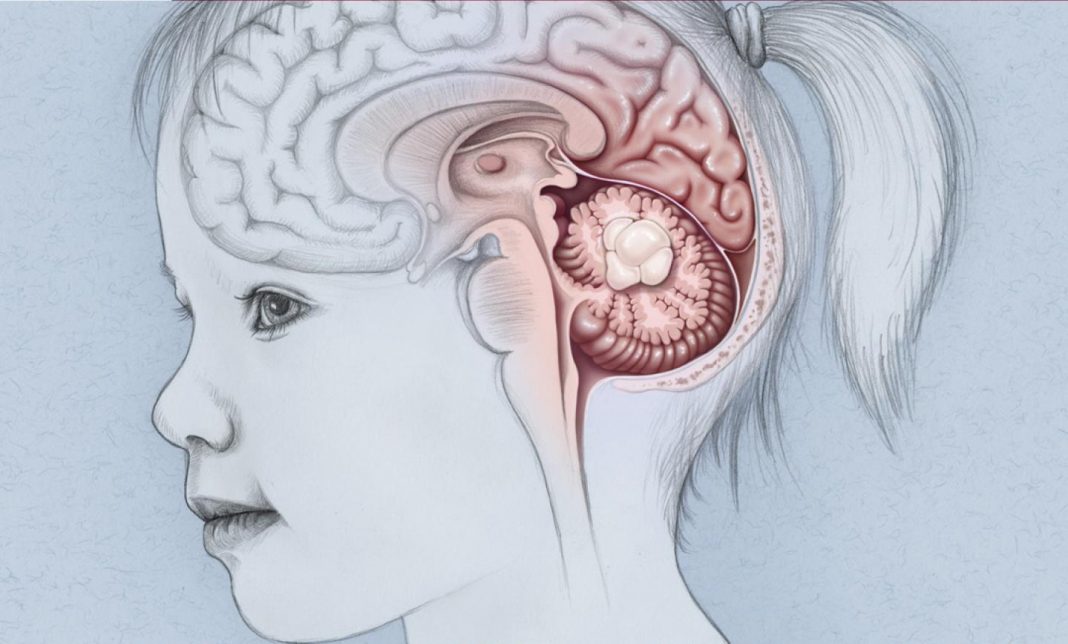Medulloblastoma (MB) is an aggressive pediatric brain tumor. A new study by an international research team reveals the tumor exists in a pre-malignant form at birth after initially developing during the first or second trimester of pregnancy. The findings suggest there may be a window of several years during which medulloblastoma could be prevented.
The new study is published in the journal Nature in an article entitled, “Failure of human rhombic lip differentiation underlies medulloblastoma formation.”
“MB comprises a group of heterogeneous pediatric embryonal neoplasms of the hindbrain with strong links to early development of the hindbrain,” wrote the researchers. “Mutations that activate Sonic hedgehog signaling lead to Sonic hedgehog MB in the upper rhombic lip (RL) granule cell lineage. By contrast, mutations that activate WNT signaling lead to WNT MB in the lower RL. However, little is known about the more commonly occurring group 4 (G4) MB, which is thought to arise in the unipolar brush cell lineage.”
The researchers focused on the most common and least understood subgroup of medulloblastoma called group 4. The researchers collected medulloblastoma samples from children’s hospitals around the world and used sequencing technologies to identify genetic variations that can cause group 4 medulloblastomas.
The researchers observed that these genetic variations were “stalling” normal cellular differentiation in a specific cell type only present during early fetal development of the human cerebellum. This “stalling” of normal cellular differentiation results in a pre-malignant form of the tumor that then resides in the brain after birth, a finding which may be generalizable to the other forms of medulloblastoma.
The researchers noted that the cell type they identified is far more common and is found in a region of the developing cerebellum that is more structurally complex in humans compared to other mammals. They say this could mean medulloblastoma is a direct consequence of the evolved complexity of the human cerebellum.
The team’s findings show medulloblastomas originate much earlier in pregnancy than previously thought and that they could even be preventable.


